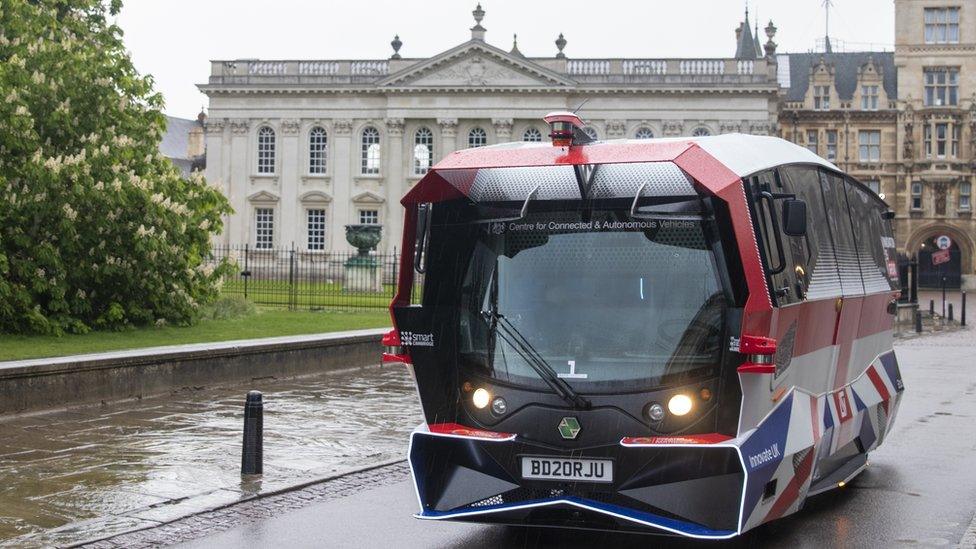Free driverless bus trial starts in Cambridge
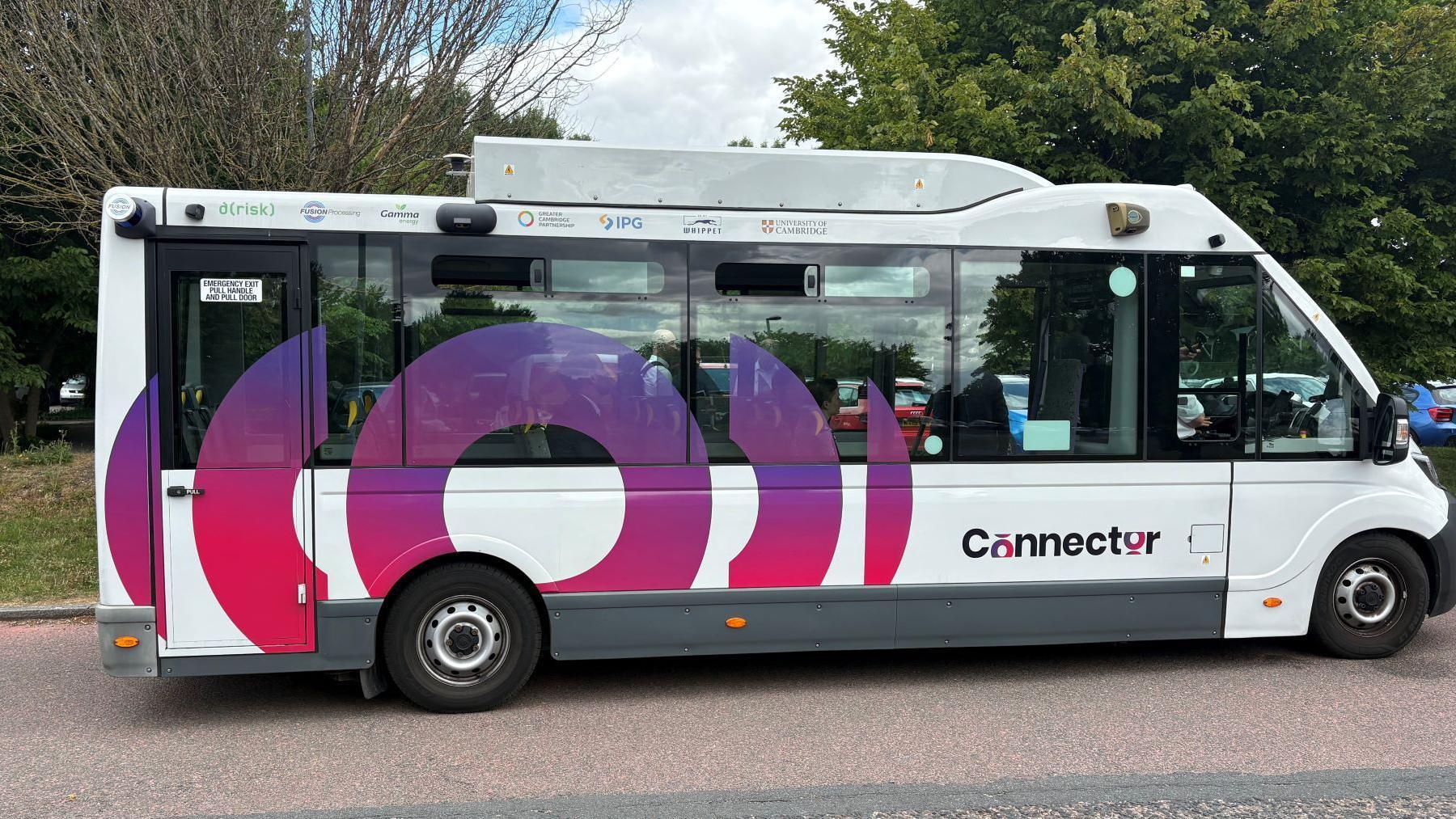
Driverless buses were launched in Cambridge for the first time
- Published
The first driverless bus trial with passengers has started in Cambridge.
A 15-seater automated bus service has launched between Madingley Road Park & Ride, the University of Cambridge's Eddington neighbourhood and Cambridge West Innovation District.
Greater Cambridge Partnership (GCP) said the trial, which runs until March 2026, followed "extensive virtual and on-road testing".
The pilot passenger service is free, and four 18-minute loop services would run in the mornings and afternoons, Monday to Friday.
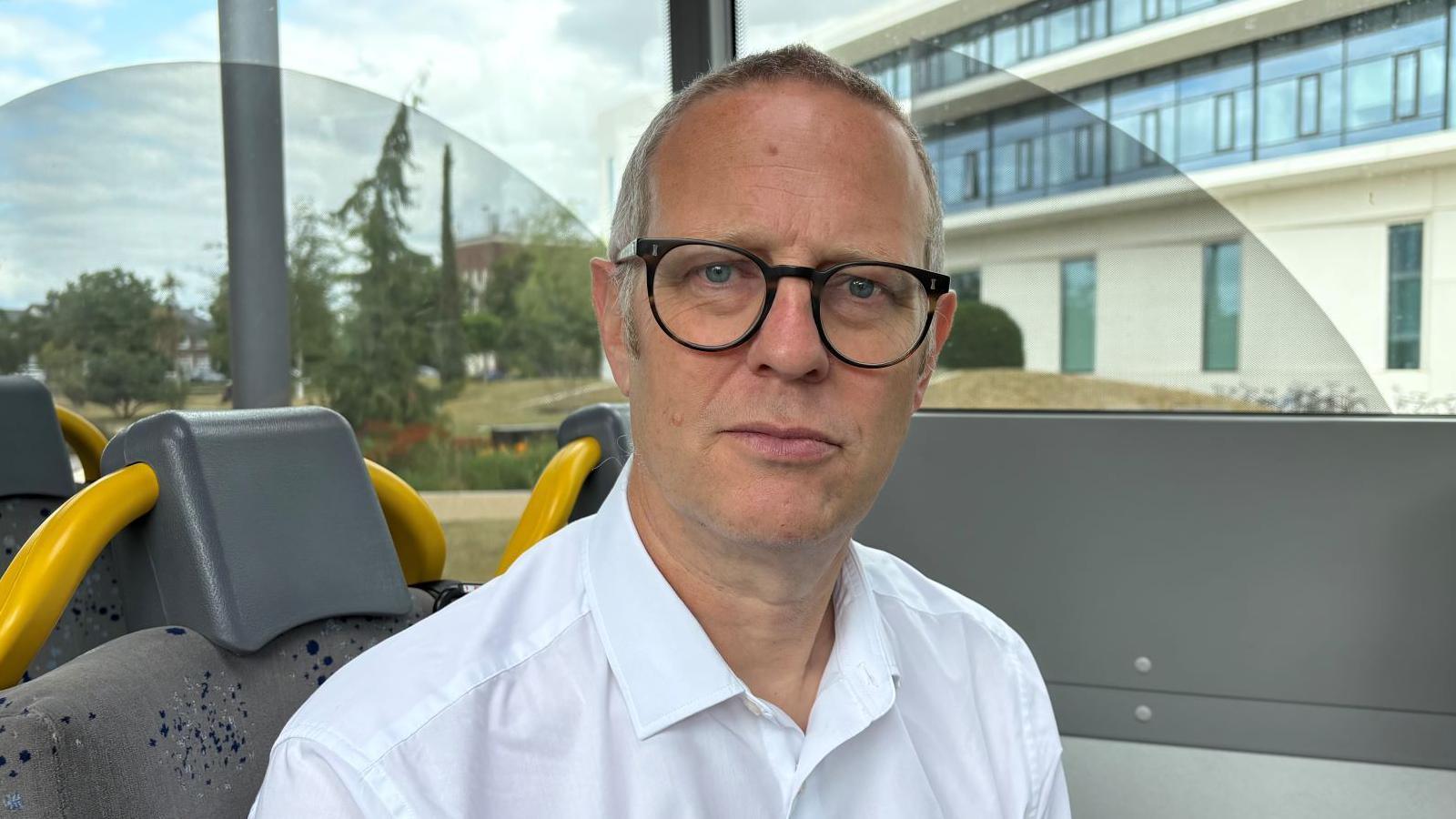
Daniel Clarke of the Greater Cambridge Partnership said the buses would help improve connectivity and public transport options
Daniel Clarke, head of innovation and technology at GCP, said the project cost £6.9m, with £4.35m provided by the government and the remainder contributed by industry partners.
"We're just exploring the technology to see how it can help us to improve the public transport system," said Mr Clarke.
"There are areas where public transport isn't commercially viable, where it's not running, things like rural transport and overnight transport.
"We think there is a 'use case' for buses without drivers in those areas."
Passengers would be asked for feedback about how they felt about riding in a bus with no driver.
Mr Clarke said autonomous bus trials elsewhere in the country had shown a reduction in operating costs.
"The cost of the driver is significant," he said.
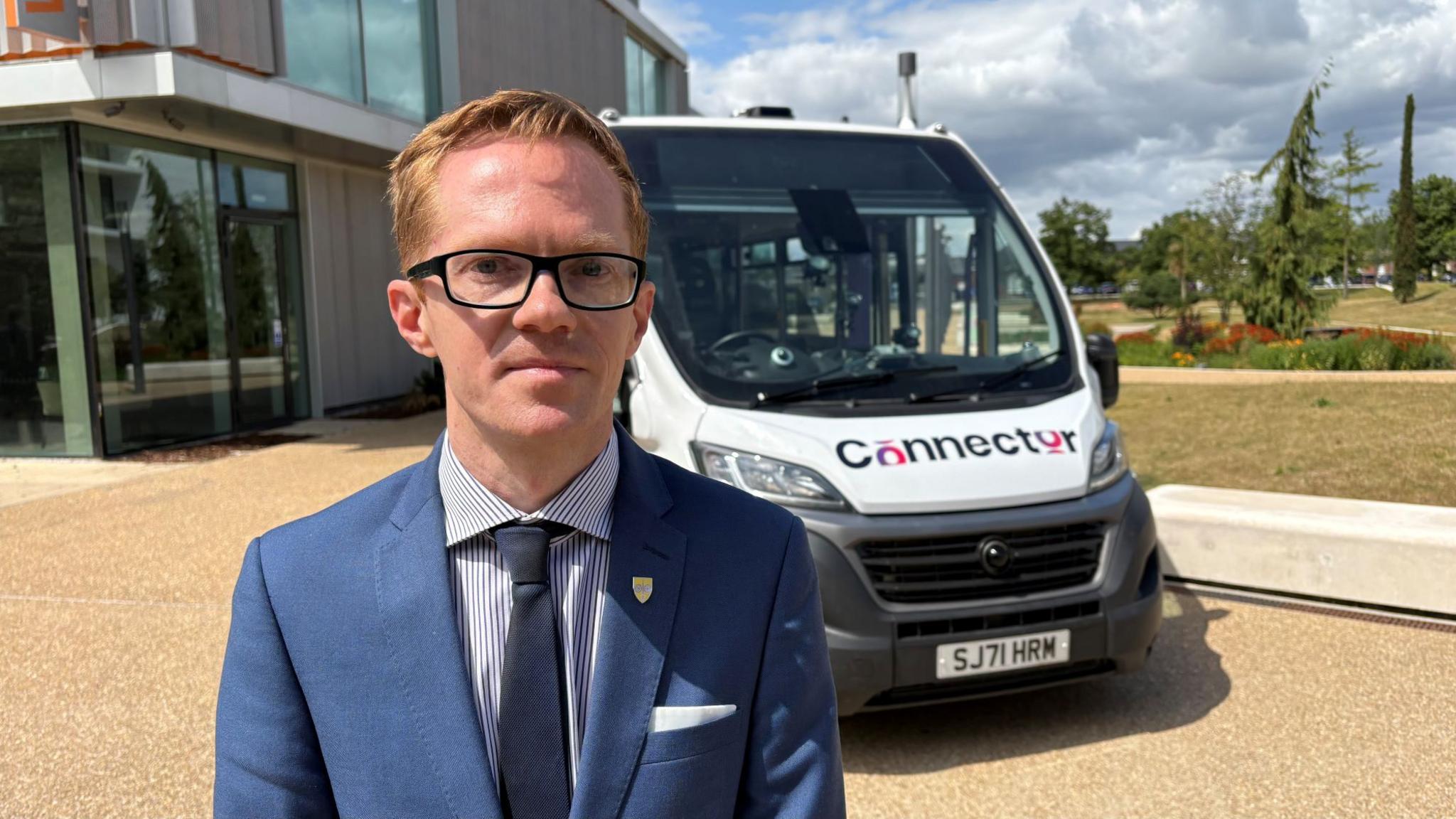
Ed Cameron, who runs Whippet buses in the city said automation could lead to changes in job roles
The services were being operated by Whippet buses and would have a safety driver on board.
Ed Cameron, director at Whippet, said: "There's a number of practical applications around Cambridge, perhaps shuttles around the business parks, and it will be interesting to see how that develops after the trial."
He said automation would lead to changes in jobs, with staff involved in "more of a customer service" role.
"It perhaps changes their role, but I don't see it as a threat," he said.
A second trial will start in the summer from Babraham Park and Ride to the Bio-Medical Campus, and the routes will operate from early September until March 2026, with timetables issued for the free services.
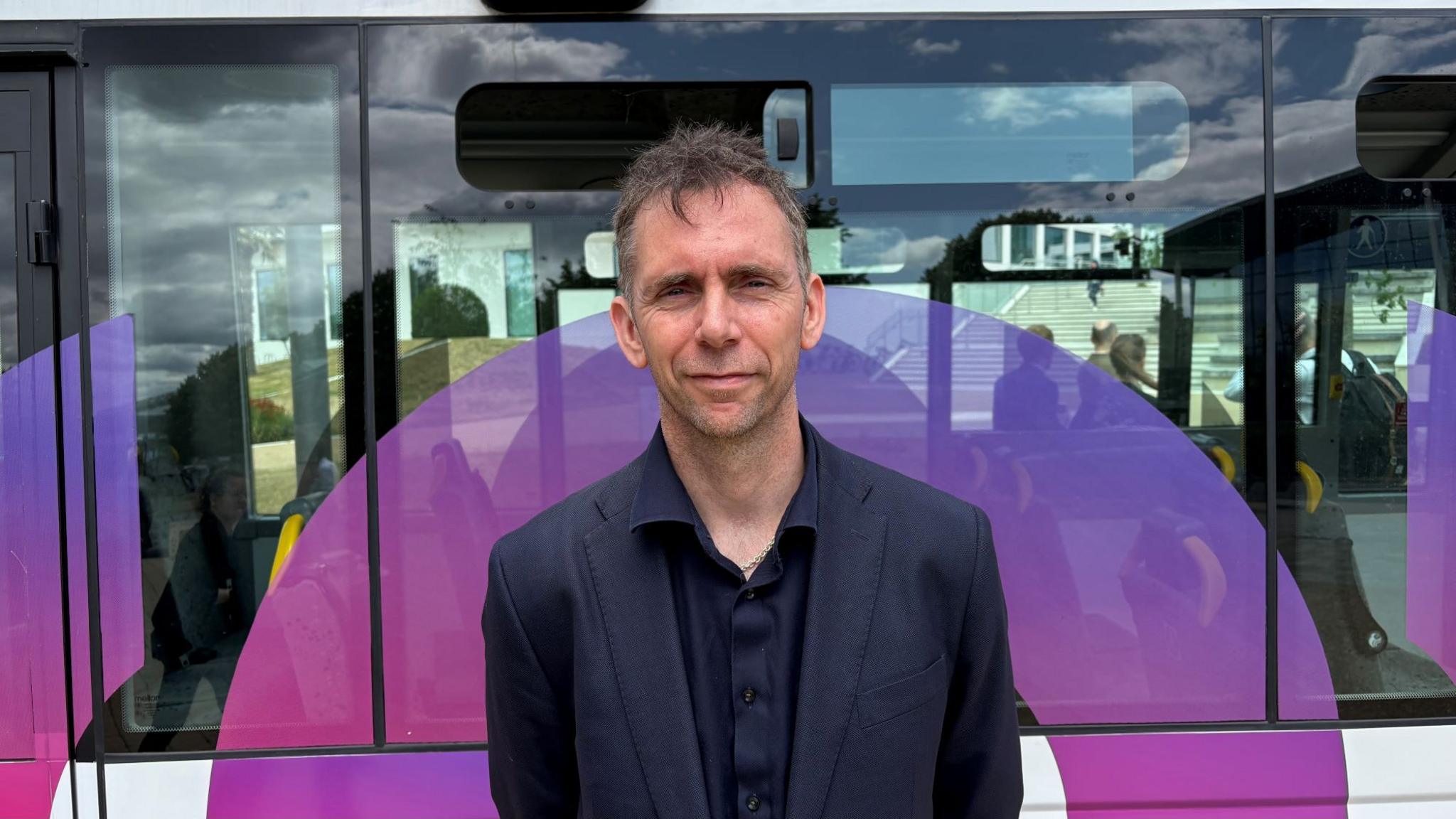
Jim Hutchinson said numerous trials have been done to ensure that automation was safe
Fusion Processing designed the bus and has carried out driverless bus trials in other areas of the country.
Its chief executive officer, Jim Hutchinson, explained how 20 different sensors on the bus' exterior - including lidar and radar sensors - and cameras would ensure it avoided obstacles.
"They're all taking in data from the surroundings, and working out what's going on around the bus, what all the different objects are - there's people, there's cyclists, there's cars - plotting what they're all doing," said Mr Hutchinson.
Should a pedestrian or cyclist step out in front of the bus, "it will detect them very, very quickly and stop and wait for them to pass".
"This has been tested both in reality and on the track many, many times," said Mr Hutchinson.
"So we are confident its reaction speed is better than a human's.
"Our system, it doesn't get bored, it can react very quickly, it doesn't get distracted, so the aim is ultimately that this will be safer than human drivers."
Cambridgeshire's first driverless bus
All aboard the driverless bus now picking up passengers.
Reaction to driverless buses
Gym manager, Dan Collins, 21, who uses the Cambridge park and ride bus service, was confident "they should be safe".
Joel Salerno, who works in IT, said he was concerned about the "ethics" involved if a self-driving bus hit a car or person, but added: "I think stepping on one and using one wouldn't be too different in terms of the user experience."
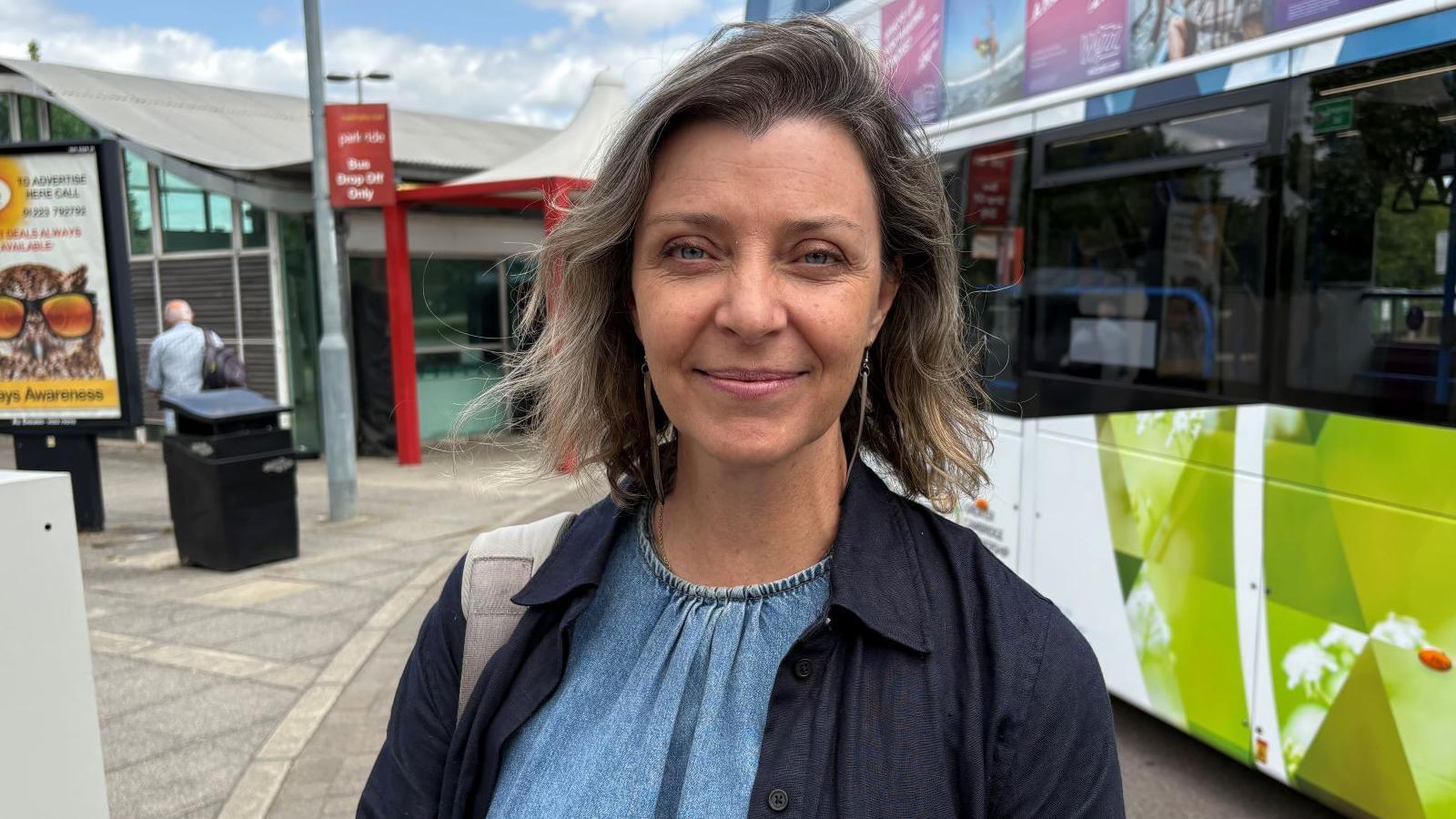
Emma Pratt said she would use a driverless bus
Researcher Emma Pratt, 53, said she would use the service.
"I suppose they wouldn't put it on the road if it wasn't fully tested," she said.
Meanwhile, Jamie King, novel writer, said: "I think yes, but not tomorrow.
"I'm open to it, not ruling it out, just don't want to be at the front of the line."
Sisters Corinne and Chelsea Konadu would also prefer other people test it first.
"But it sounds like a cool idea," they agreed.
Get in touch
Do you have a story suggestion for Cambridgeshire?
Follow Cambridgeshire news on BBC Sounds, Facebook, external, Instagram, external and X, external.
Related topics
More similar stories
- Published10 June

- Published31 March
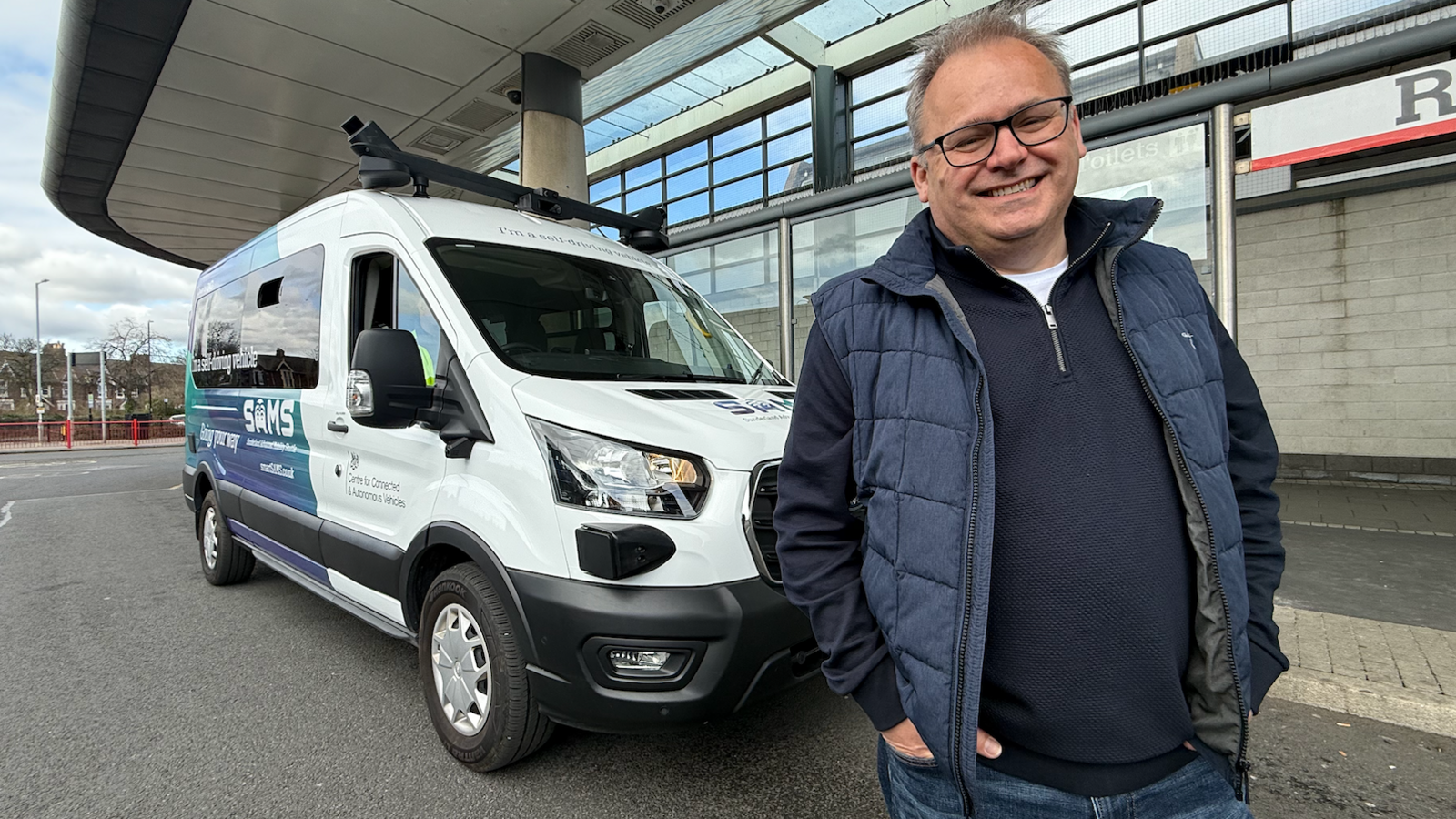
- Published1 November 2024
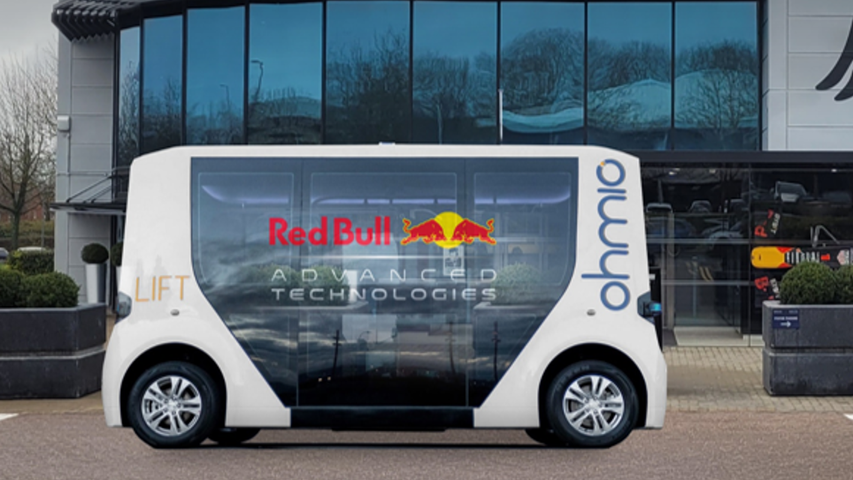
- Published27 May 2021
